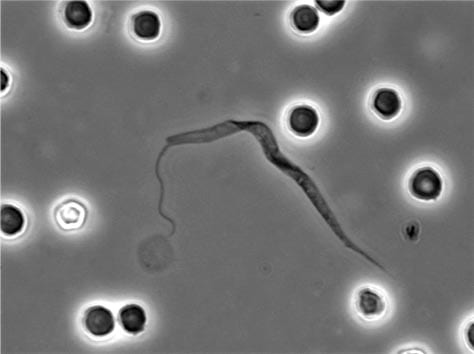18 Aug 2020
Roslin Technologies, the UK’s agri-tech venture builder, is developing a unique vehicle to deliver vaccines to sheep and goats that uses a single-cell parasite found on a remote North Atlantic island.

Karen Fairlie-Clarke, innovation and engagement manager for Roslin Technologies, said the technology offers huge potential.
Technology generated from a harmless single-cell parasite found on a remote North Atlantic island is being developed to deliver vaccines to sheep and goats.
Roslin Technologies has announced it is working on a breakthrough means of vaccine delivery to sheep and goats using trypanosomes.
The vaccine vehicle forms part of the company’s growing portfolio of innovative tools to combat livestock infectious diseases.

The technology under development can be manipulated by scientists to host proteins for a wide range of conditions, including those transmitted by viruses, bacteria or parasites.
The team is initially investigating creating a vaccine to tackle peste des petits ruminants virus, which threatens 80% of the global population of sheep and goats, and is an issue particularly in Asia and Africa.
The basis of the delivery method is the non-pathogenic Trypanosoma melophagium parasite, which has been isolated by University of Edinburgh scientists on St Kilda – a Scottish island 40 miles from the Outer Hebrides.
It is spread by the sheep ked – a wingless insect – and is absent in UK farmed sheep because they are dipped to eliminate infestations.
Keith Matthews, principal investigator for the project at The University of Edinburgh School of Biological Sciences, said: “Our major advance is that we will be able to immunise sheep against a wide range of pathogens using a harmless organism that they naturally harbour.”
Karen Fairlie-Clarke, innovation and engagement manager for Roslin Technologies, said: “With such huge potential, we are eager to gather together partners who can deploy this technology to improve vaccine performance and increase the number of pathogens that can be targeted.”